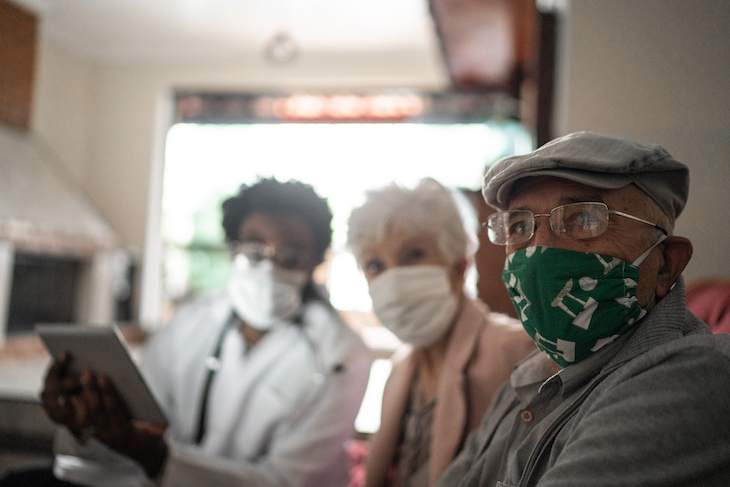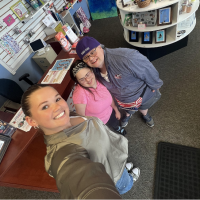By Ann Mastandrea, Cleveland Foundation Leadership Development Intern
The COVID-19 pandemic has undoubtedly cast its shadow over everyone in the United States. There isn’t a single person whose life hasn’t in some way been touched by the virus. However, some people, including older adults and those who work with them, have been disproportionately affected by negative outcomes associated with the pandemic. This fact became abundantly clear to the Center for Community Solutions (CCS) as they prepared to survey the member organizations of the Cuyahoga County Division of Senior and Adult Services (DSAS) Senior Center Network. The network was already projecting a need for greater resources pre-pandemic, as a growing share of Cuyahoga County’s population is age 60 and older.
Major findings
75% of DSAS Senior Center Network members report that the pandemic has caused “significant disruption” to their services, as congregate meals and group activities have been cancelled, and check-ins with social workers pivoted to an entirely virtual format. Unfortunately, enforcing social distancing within the senior centers to keep their clients safe from the COVID-19 virus presents its own problems. Social isolation, defined by the Council on Older Persons as being an objective measure with severe impacts on mental health, has overwhelmingly become the No. 1 concern for senior center clients – ahead of the COVID-19 virus itself.
85% of providers within the network report being “very concerned” about the mental and physical health of their clients, and the same amount report being “very concerned” or “slightly concerned” about the mental health of their staff as well. This comes as a result of an increase in demand for services during an already unprecedented time, coupled with a decrease in staffing levels due to strains on funding. The growing discrepancy in the staff-to-client ratio makes burn-out for providers a very real problem, meaning, “supporting staff is critical.”
Looking towards the future
97% of the senior center respondents expressed that DSAS has been helpful thus far in mitigating the effects of the pandemic. CCS suggests that DSAS leverage its power as one of the largest county agencies and continue to advocate for seniors during such challenging times. In addition, DSAS must continue to support staff as they also deal with the fallout of the pandemic both professionally and personally.
CCS offers other recommendations relating to the senior centers’ ever-growing need for resources. These suggestions include:
- encouraging volunteers to help support staff;
- increases in funding; and
- increases in mental health supports for both clients and staff.
Ultimately, CSS emphasized it should be a priority to understand, “that the pandemic is not being experienced similarly.” Different populations have been disproportionately impacted by the pandemic and it is a matter of intersectionality that, even among the senior population, not everyone will experience the effects in the same way.
Current efforts
Vaccination will be one of the most important tools to end the pandemic and protect older adults. As vaccine guidelines continue to change and more people become eligible to receive their first and second doses, including both residents and staff at senior centers, AARP started creating vaccine guides for every state to help keep seniors informed. These guides answer frequently asked questions, including who is currently eligible to get the vaccine and where they can get it.
Until everyone is fully vaccinated and social distancing is no longer necessary, one of the biggest efforts to prevent social isolation in seniors is keeping them digitally connected. More than half of Cleveland seniors age 65 and older don’t have access to internet or a computer. In order to address this digital divide and keep seniors connected with health care providers, their friends and families, and other crucial services, The Greater Cleveland Digital Equity Fund is providing a senior-focused advocacy agenda. Other organizations offering technology-based support include PCs for People, who work to make hotspots and computers more accessible, and ASC3, offering their Digital Literacy Technology Training Center to help seniors confidently navigate the internet.
How you can help
You can learn more about the Greater Cleveland Digital Equity Fund, and make a contribution to their efforts to connect more people across our community, here.
Learn more about the work of the Cuyahoga County Division of Senior and Adult Services (DSAS) here.
Explore the Center for Community Solution’s research on the wellbeing of older adults here.



